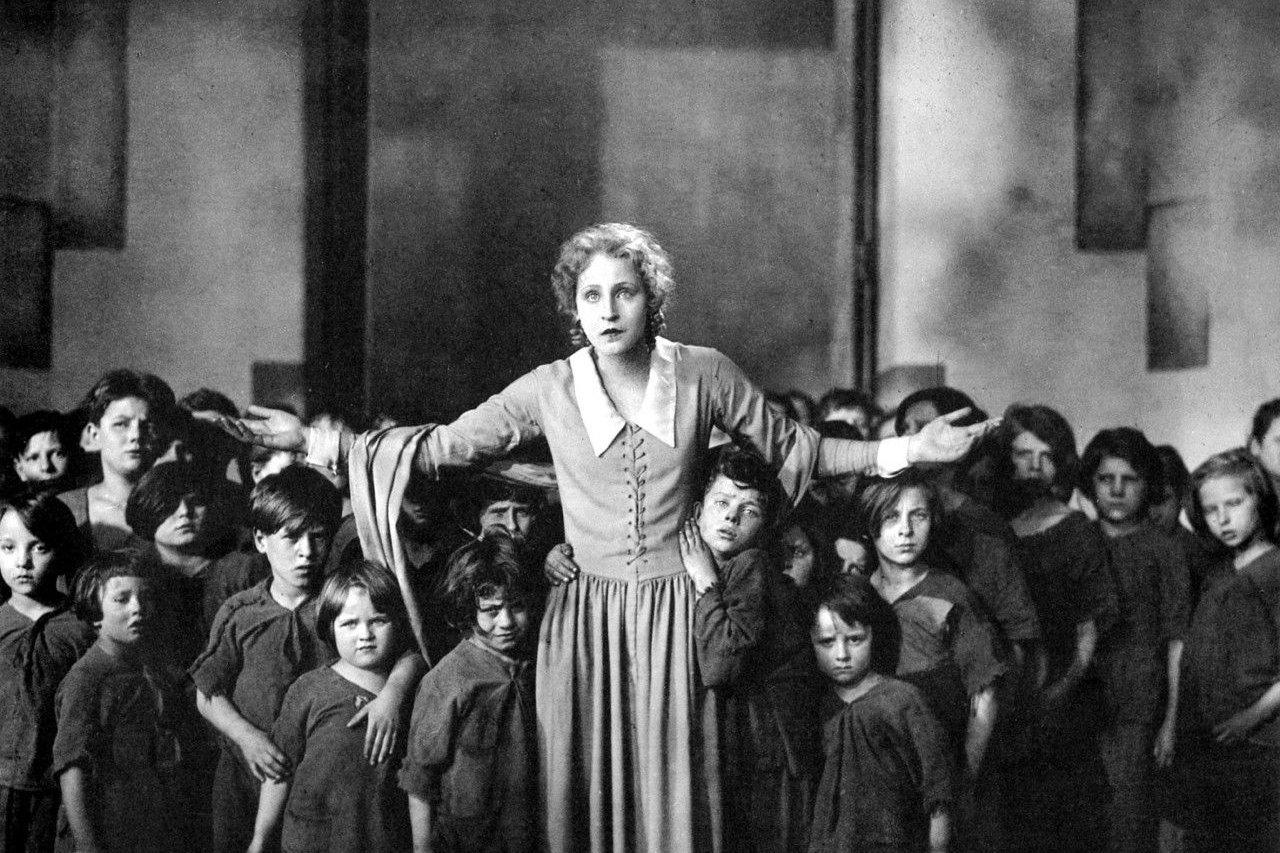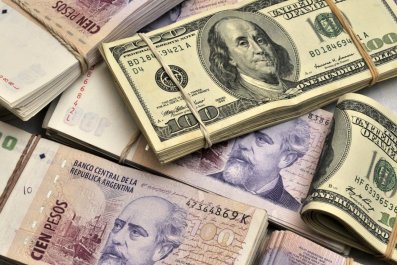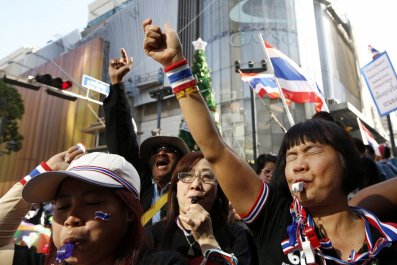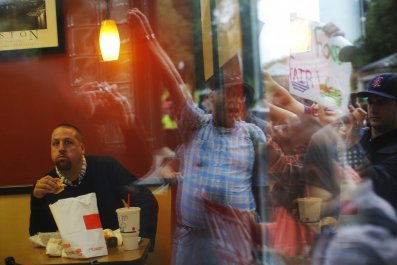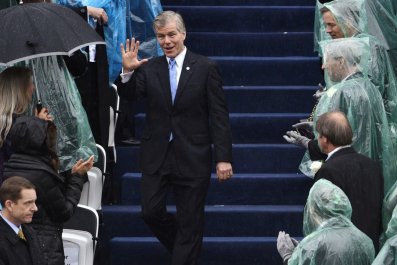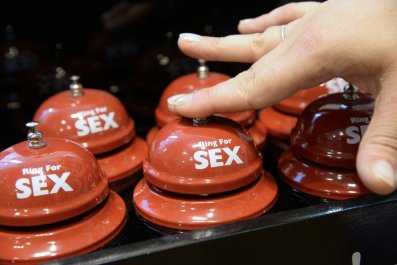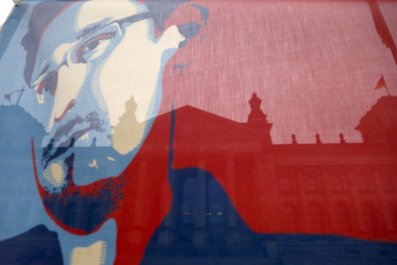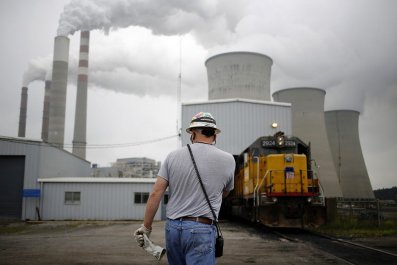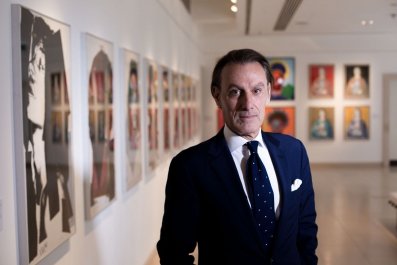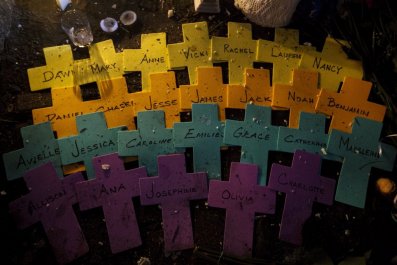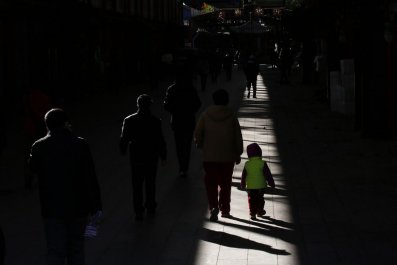Utopia is a joke - and has been one for a while. The word comes from the Greek ou topos, meaning no place, suggesting the impossibility of the ideal society that word suggests. The notion entered our lexicon in 1516, when Thomas More published Utopia, which imagined "the best state of a public weal," a society of religious comity and communal good. It was less a practical vision than a critique of Tudor England, whose regent, Henry VIII, had More executed in 1535. So much for that.
Writing three centuries later, Karl Marx warned that "the man who draws up a programme for the future is a reactionary." What an irony, then, that his writing engendered so much bloodshed in the name of progress.
Utopia is illusory, but dystopia is all too real, a future more frightening even than the dreary present. A distinctly modern genre, dystopian fiction has a corrective purpose that recalls medieval paintings of damnation (hellfire, devils, etc.), which were supposed to shock your average sinner into God-fearing probity. The dystopian novel is a Boschian paysage for the modern man.
Probably the first great dystopian novel of the 20th century was Yevgeny Zamyatin's 1921 fiction We, which was completed on the cusp of Joseph Stalin's ascent and presciently predicted his totalitarian model, in which the human will is subsumed by forces that frighten the mind into thoughtless docility while taming the body's carnal impulses. George Orwell's 1984 and Aldous Huxley's Brave New World imagined the malignancies arising from the quest for what Zamyatin called "faultless happiness," a phrase that becomes more ominous the longer your mind lingers on it.
Today's dystopian novels seem less preoccupied with onerous political systems than with digital technology, the silvery glow of iPhone screens inoculating us against ineradicable reality of the grimy un-virtual kind. There will be an estimated 10.9 billion people on Earth by 2100. Some will live in glass towers where retina-tracking sensors will adjust the ambient temperature and bedside DNA readers will sound a gentle alarm if your TP53 tumor suppressor gene suddenly goes astray; many will live in crowded slums, much as they do today in Bombay and Lagos and Los Angeles. They will drink the same dirty water the poor have always drunk. The Great Pacific Garbage Patch will grow, as will the hole in the ozone layer. Some of us will exercise by swallowing a pill. Armies will clash, maybe with guns, maybe with sonic cannons. And so we will hurtle into the future.
It's no surprise that three of our finest novelists - Margaret Atwood, Chang-rae Lee and David Eggers - have recently published dystopian novels that warn against a world pulled apart into pockets of techno-luxury and vast expanses of old-fashioned, unalloyed misery. Adam Sternbergh - a young writer not yet in the ranks of the three above but with plenty of promise - has just published a debut novel, Shovel Ready, that reads like Cormac McCarthy's The Road set in New York and narrated by a New Jersey goon. For all their differences, each of these novels suggests that we are blind to what we have been doing to ourselves, to each other and to the Earth. We will thus keep doing it.
Atwood's Maddaddam is the culmination of a trilogy (bearing the same name) that began with Oryx and Crake (2003) and continued with The Year of the Flood (2009). Her world is classically dystopian: wracked by disease, absent of law, rife with hybrid species like pigoons and rakunks that are the grotesque products of our boundless hubris. A good part of the landscape, the pleeblands, recalls the iconic images of modern-day Detroit, with its fields sown with decay and grand old buildings that look like mouths with missing teeth. Painballers prowl the terrain, their name quite vividly suggesting their purpose.
This future is grim, sure enough, but Atwood says optimism about the human condition is not warranted by history. Speaking to me from Toronto, she reminds that "we've been through bottlenecks before" and that humanity must necessarily contract, whether through Black Plague or World War. She offers practical prescriptions to avoid doom: "Step one," she says, "is don't kill the oceans." She adds that "we need to develop other sources of cheap energy, fast" if we want to wean ourselves off the worship of hydrocarbons, which in the Maddaddam trilogy have become the focus of an actual religion, the Church of PetrOleum. And while Maddaddam is her fullest realization of what the future could hold, she hopes that the good guys may yet prevail or at least put up a decent fight.
"We not there yet," Atwood says drily. "Hallelujah. I am happy about that."
If we are not yet caught inside The Circle, the latest novel from David Eggers, then we must be very close. Of the recent spate of dystopian novels, this one hews closest to the reality scrolling by on your Twitter feed; the book is a mirror in which we would glimpse our scattered selves if we were only not so busy snapping yet another selfie. Though Eggers says he did not visit the campuses of tech corporations like Facebook or Google for research, he seems to have culled the most frightening elements of Silicon Valley for the company he calls the Circle. His protagonist, Mae Holland, becomes an unquestioning acolyte of its stifling digital utopianism and is so accurately portrayed that a former Facebook employee, Kate Losse, accused Eggers of stealing from her memoir, The Boy Kings: A Journey Into the Heart of the Social Network.
Whereas Atwood's dystopia is one of ecological destruction, Eggers fears the encroachment of ones and zeros upon the frontal cortex, where they multiply like a blinding tumor. It is the tragic conflation of information with knowledge that troubles him most, the illusion that insight is never more than a click away. Eggers told The Telegraph late last year that the greatest threat to our freedom is our "feeling that we're entitled to know anything we want about anyone we want." One of the founders of the Circle says, with utter conviction, that humanity has gloriously entered an "era where we don't allow the majority of human thought and action and achievement and learning to escape as if from a leaky bucket." Yet what seems like freedom quickly curdles into an utter lack of privacy or solitude, digital utopia devolving into a plaything of those who own the server farms.
Chang-rae Lee's new novel is more surprising than its dystopian peers. Written in the first-person plural, the elegantly ominous On Such a Full Sea is acutely unlike Lee's other novels, which have largely focused on the Asian experience in America, with its twin pressures of alienation and assimilation. The setting here is B-Mor, once known as Baltimore, now occupied by workers whose predecessors were imported from Xixu City of "New China." One of them, Fan, has set out to search for her boyfriend Reg, thus leaving the confines of B-Mor for the frightening lands beyond, "armed with nothing more than the force of her feeling." Her quest reminds of the last line of Samuel Beckett's The Unnamable, a novel he published less than a decade after World War II: "I can't go on, I'll go on."
Speaking to me from Princeton, where he teaches creative writing, Lee calls On Such a Full Sea a "thought experiment," which may well describe all novels but dystopian ones in particular, as they do not have the luxury of dwelling in the past and generally have to venture far afield of the present. So they stack frightful suppositions one atop another. Lee's are convincing: an influx of Chinese workers fill empty American cities, increasing inequality, the erection of firm physical barriers between the rich and poor. The residents of B-Mor farm fish for the residents of the charter villages, which are essentially closed suburbs. In the interstitial spaces between the middle-class cities and the upper-class charters are the counties, Lee's version of Atwood's pleeblands. There, to the wilderness, is where Fan heads.
On Such a Full Sea is a novel of inequalities suppressed only to return with redoubled force, much as in the recent dystopian film Elysium, where the bedraggled residents of Earth, led by a roguish Matt Damon antihero, invade a space colony reserved for the wealthy. During our conversation, Lee mentions the recent New York Times series on Dasani Coates, a homeless girl from Brooklyn whose story highlights the plight of the city's poor. The residents of cities like B-Mor do all they can to insulate themselves from the festering poverty of the counties while looking with longing to the charters, with their "stately houses and sleek, jazzy condos."
Lee's dystopia has much in common with that of Eggers. The individual is sufficiently insulated from reality - whether digitally, as in The Circle, or physically, as in On Such a Full Sea - to not have to care about it. "Do not discount the psychic warmth of the hive," urges the narrator as Fan continues to wander through hinterlands that will be familiar to anyone who has driven across America in the past decade. A dystopian novel is predicated on precisely such a rejection of the hive's psychic warmth, on a renegade willing to shatter collective delusions.
Adam Sternbergh's agreeably macho dystopia, Shovel Ready, pays ample homage to Times Square, already our most supremely unnatural space, washed by the argentine light of a thousand screens and invaded by insectan scrums of tourists. Here, though, the "Crossroads of the World" has been tainted by a dirty bomb, leaving New York a wasteland. That's not at all far-fetched, considering that the terrorist manqué Faisal Shahzad was only prevented from causing Times Square bloodshed three years ago by the paucity of his own bomb-making skills. Sternbergh's protagonist is Spademan, a garbageman turned contract killer. Forever concerned with disposal of one kind or another, he reminds of what the psychoanalyst Jacques Lacan said of our primary existential predicament in 1978: "The characteristic of a human is that...he doesn't know what to do with his sh**."
Sternbergh told me he "wanted to explore that idea of the apocalypse that doesn't involve asteroids, or aliens, or an accidentally unleashed super-virus, but which happens slowly, over time, almost imperceptibly, as millions of individuals make decisions to finally give up on a place - resulting in an exodus that, in its way, is just as devastating."
He wrote those lines just days after he had become a father. I thought that ironic, joyously bringing a life into this world while chronicling the depredations of a future one's progeny could well occupy. But what other choice do we have? Even if the future seems foreboding, the species pushes forward into the unknown, which we can only pray will not as bad as our darkest dystopian imaginings. These bleak novels serve as a sort of catharsis. You close the book and say to yourself, It won't really be that bad...I hope.



